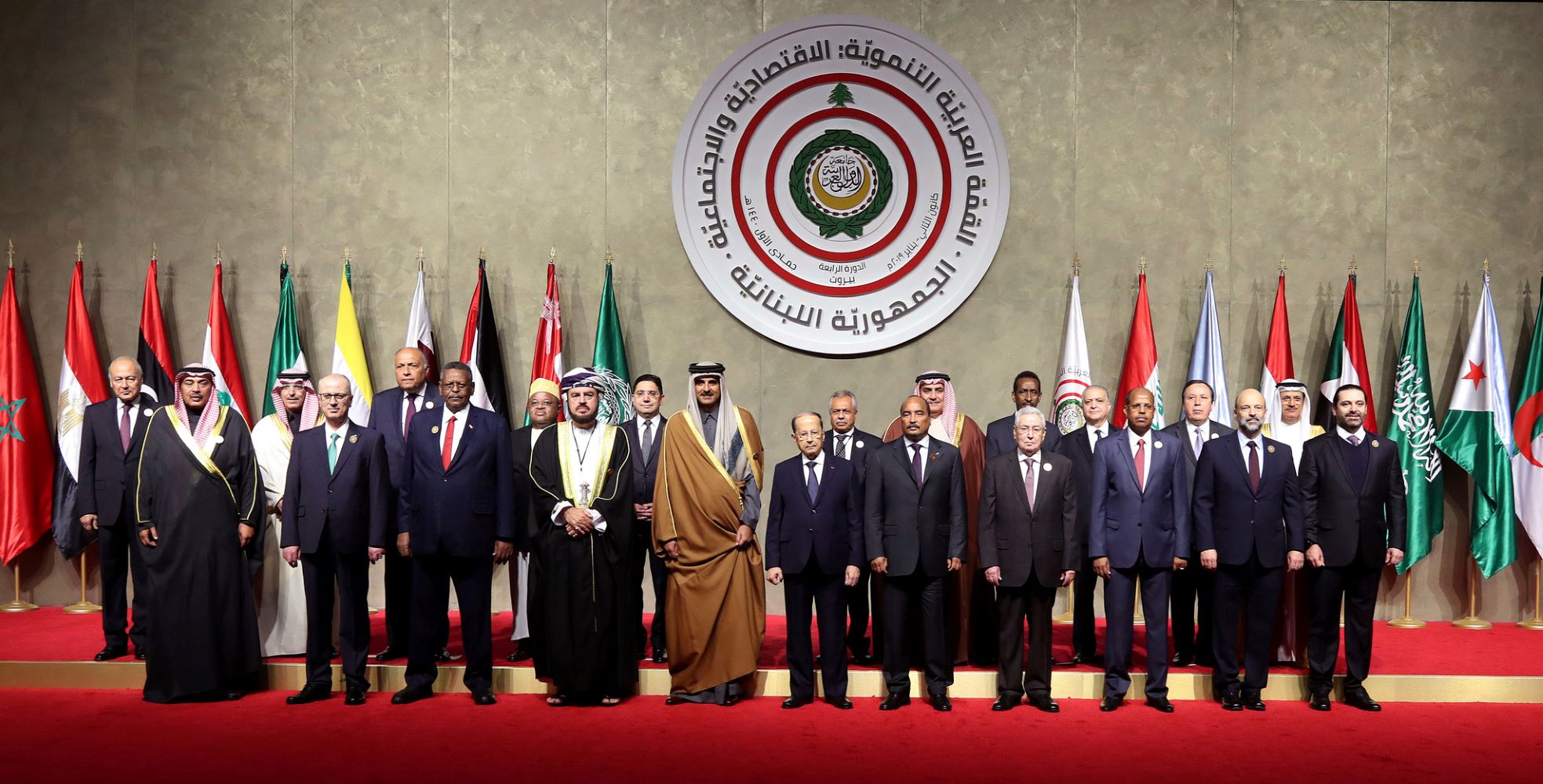
Arab leaders have long shaped the political, cultural, and social landscapes of the Middle East and beyond. From ancient caliphs to modern presidents and monarchs, their stories are woven into the fabric of history, each contributing in unique ways to the world we know today. Arab leaders are not just political figures; they are symbols of their nations' identities, aspirations, and struggles. This post unveils 19 intriguing facts about these influential figures, shedding light on their achievements, challenges, and the legacies they've left behind. Whether you're a history buff, a political enthusiast, or simply curious, these insights will offer a deeper understanding of the leaders who have played pivotal roles in shaping the Arab world.
Understanding Arab Leaders
Arab leaders have long been influential figures on the global stage, shaping not only the political landscape of the Middle East but also impacting international relations. Their leadership styles, policies, and decisions have varied greatly, reflecting the diverse cultures, histories, and political systems of their countries.
-
Sultan Qaboos of Oman, who ruled from 1970 until his death in 2020, was the longest-serving leader in the Middle East. His reign was marked by a policy of modernization and neutrality, making Oman a peaceful mediator in regional conflicts.
-
King Abdullah II of Jordan has been known for his efforts in promoting peace in the Middle East, advocating for a two-state solution to the Israeli-Palestinian conflict.
The Role of Arab Leaders in Peace and Conflict
Arab leaders have played pivotal roles in both fostering peace and in the escalation of conflicts within the region.
-
Anwar Sadat, the President of Egypt from 1970 until his assassination in 1981, made history by visiting Israel in 1977, which led to the signing of the Egypt-Israel Peace Treaty, a groundbreaking step towards peace in the region.
-
In contrast, Saddam Hussein, the President of Iraq from 1979 until 2003, led his country into two disastrous wars: the Iran-Iraq War and the Gulf War, which had lasting impacts on the Middle East's geopolitical landscape.
Economic Policies and Development
The economic policies of Arab leaders have significantly influenced their countries' development paths, with some focusing on oil wealth and others on diversifying their economies.
-
Sheikh Mohammed bin Rashid Al Maktoum, the ruler of Dubai and Vice President of the UAE, has been instrumental in transforming Dubai into a global city, focusing on tourism, aviation, real estate, and financial services.
-
King Salman of Saudi Arabia has initiated Vision 2030, a plan aimed at reducing the kingdom's dependence on oil, diversifying its economy, and developing public service sectors such as health, education, infrastructure, recreation, and tourism.
Social Reforms and Human Rights
Social reforms and human rights issues have been at the forefront for some Arab leaders, while others have faced criticism for their records.
-
Mohammed bin Salman, the Crown Prince of Saudi Arabia, has introduced significant social reforms, including granting women the right to drive and reducing the powers of the religious police.
-
However, Arab leaders like Bashar al-Assad of Syria have been widely criticized for human rights abuses, especially during the Syrian Civil War, which has led to a humanitarian crisis.
Arab Leaders in the International Arena
Arab leaders often play significant roles in international politics, balancing relationships with major powers while advocating for their countries' interests.
-
Gamal Abdel Nasser of Egypt was a prominent figure in the 20th century, leading the non-aligned movement and promoting Arab nationalism, which sought to unite Arab countries against colonialism and Zionism.
-
King Faisal of Saudi Arabia was known for his role in the 1973 oil embargo, which was a response to Western support of Israel during the Yom Kippur War, showcasing the influence of Arab countries in global energy markets.
Legacy and Leadership
The legacy of Arab leaders is as varied as their approaches to governance, with some leaving behind a legacy of progress and stability, while others are remembered for conflict and controversy.
-
Hafez al-Assad, the President of Syria from 1971 until his death in 2000, is credited with bringing stability to Syria but also criticized for his authoritarian regime and the Hama massacre.
-
Sheikh Zayed bin Sultan Al Nahyan, the founding father of the United Arab Emirates, is revered for his visionary leadership, which transformed the UAE into a prosperous and modern nation.
-
Yasser Arafat, as the leader of the Palestine Liberation Organization, remains a controversial figure; hailed as a hero by Palestinians for his fight for a Palestinian state, yet viewed critically by others for his leadership during turbulent times.
-
Omar al-Bashir of Sudan was ousted in 2019 after three decades in power, marked by his indictment by the International Criminal Court for alleged crimes against humanity in Darfur.
-
Muammar Gaddafi of Libya, who ruled from 1969 until his death in 2011, was known for his eccentric personality and controversial policies, both domestically and in foreign affairs.
-
Hassan Nasrallah, the Secretary-General of Hezbollah, has been a significant figure in Lebanese politics, often polarizing due to his organization's military actions and political influence.
-
Khalifa Haftar, a Libyan military officer and the head of the Libyan National Army, has been a key figure in Libya's ongoing conflict, seeking control over the country amidst political fragmentation.
-
Tamim bin Hamad Al Thani, the Emir of Qatar, has navigated his country through the Gulf diplomatic crisis, maintaining its sovereignty and advancing its global influence through media, diplomacy, and investment.
-
Finally, Mahmoud Abbas, the President of the Palestinian Authority, continues to seek recognition and a peaceful resolution for the state of Palestine, amidst ongoing conflict and challenges in the peace process.
A Final Glimpse at Arab Leadership
Arab leaders have long been figures of intrigue and power, shaping not just their own nations but influencing global dynamics. From the ancient times of caliphs and sultans to today's presidents and monarchs, these leaders carry the weight of history while steering the future. Their stories, filled with triumphs, challenges, and sometimes controversies, offer a rich tapestry of human endeavor. Understanding them isn't just about recognizing names or titles; it's about appreciating the complex interplay of culture, politics, and personal ambition that defines leadership in the Arab world. As we've journeyed through the lives and legacies of these influential figures, it's clear that their impact extends far beyond borders, echoing in the corridors of global power. Their leadership, often a blend of tradition and modernity, continues to shape not only the Arab region but the entire world.
Was this page helpful?
Our commitment to delivering trustworthy and engaging content is at the heart of what we do. Each fact on our site is contributed by real users like you, bringing a wealth of diverse insights and information. To ensure the highest standards of accuracy and reliability, our dedicated editors meticulously review each submission. This process guarantees that the facts we share are not only fascinating but also credible. Trust in our commitment to quality and authenticity as you explore and learn with us.


